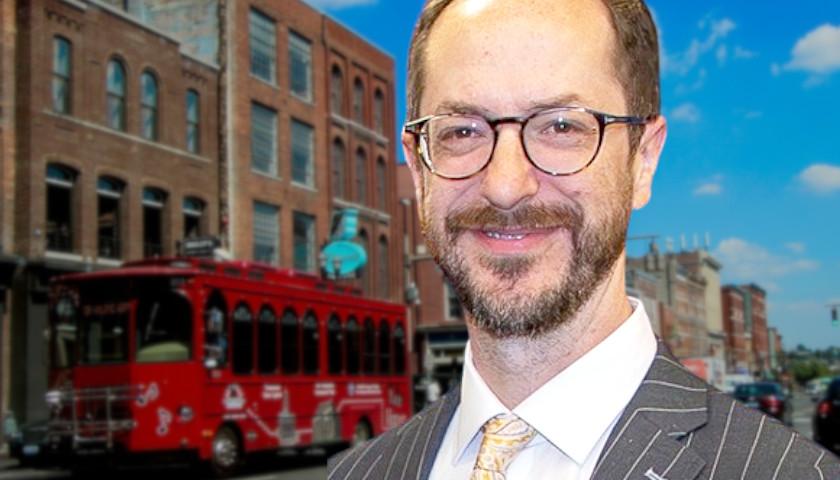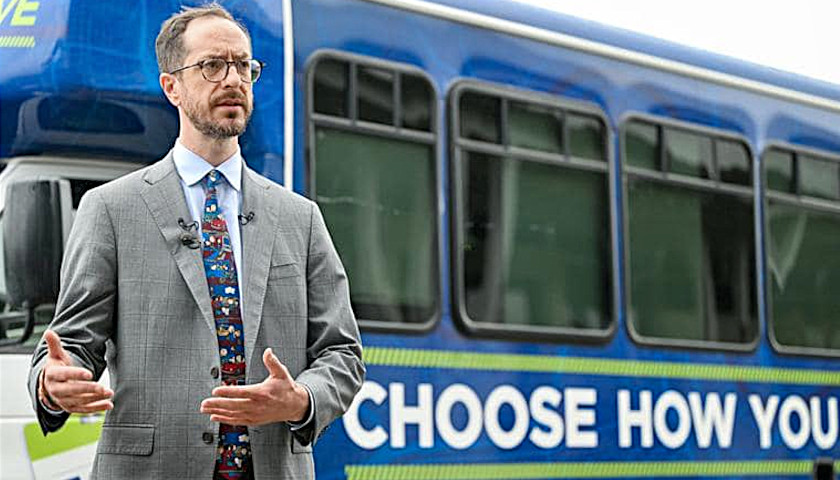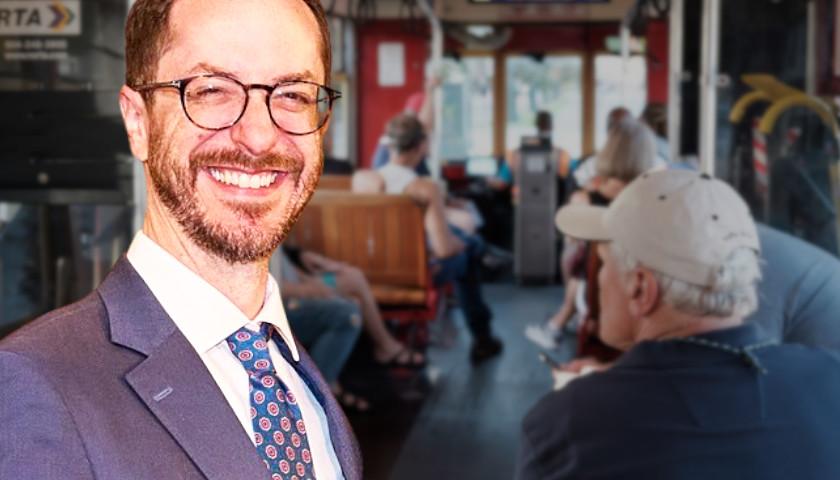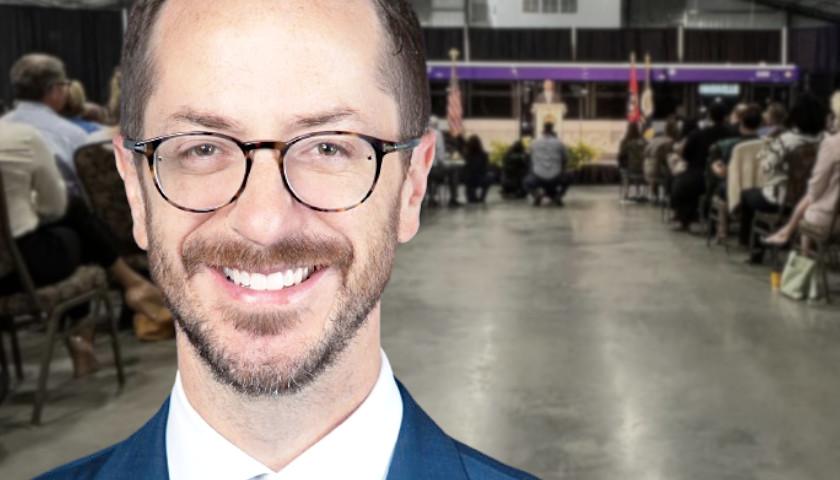Ben Cunningham, founder of the Nashville Tea Party, continues to scrutinize the legality of the Nashville mayor’s $3.1 billion transit referendum expected to be presented in front of Davidson County voters on the November ballot.
Mayor Freddie O’Connell unveiled his $3.1 billion transit plan, “Choose How You Move: An All-Access Pass to Sidewalks, Signals, Service, and Safety,” last month. The plan would be funded through a half-cent increase in the city’s sales tax to construct miles of new sidewalks, bus stops, transit centers, parking facilities, and upgraded traffic signals.
O’Connell argues that the half-cent increase to the city’s sales tax to fund the plan is permitted under the 2017 IMPROVE Act – a bill that passed the Tennessee General Assembly in 2017 and permitted local governments to seek a dedicated funding source via surcharge to support mass transportation projects through a local referendum.
However, Cunningham has consistently pointed out that the mayor’s plan appears to be illegal under the IMPROVE Act. The law only allows certain counties to increase taxes through a voter referendum for mass transit systems—such as bus routes—and not for installing simple projects such as sidewalks and traffic signals.
The legislation reads as follows:
Revenue from a surcharge must be used for costs associated with the planning, engineering, development, construction, implementation, administration, management, operation, and maintenance of public transit system projects that are part of a transit improvement program.
“Public transit system” means any mass transit system intended for shared passenger transport services to the general public, together with any building, structure, appurtenance, utility, transport support facility, transport vehicles, service vehicles, parking facility, or any other facility, structure, vehicle, or property needed to operate the transportation facility or provide connectivity for the transportation facility to any other non-mass transit system transportation infrastructure, including, but not limited to, interstates, highways, roads, streets, alleys, and sidewalks.
“When [the IMPROVE Act] defines mass transit in the bill, it says a ‘shared passenger public transit,’ it’s buses or trains, it was very specific. They said that over and over again in the legislation, in the debate on the legislation…The clear intent of this legislation was for mass transit,” Cunningham reiterated on Tuesday’s edition of The Michael Patrick Leahy Show.
Cunningham also noted that it appears O’Connell’s plan is an “opening bid” to a much larger transportation vision for Music City that includes many of the proposals included in the 2018 transit referendum – which was rejected by voters – including light rail transportation and more.
“Freddie O’Connell was a big supporter [of the 2018 transit referendum]. He was a spokesman for the group that was pushing that back in 2018. He was all in on this absurd proposal and that’s where his heart still is. Make no mistake, Freddie O’Connell wants regional light rail running out to Sumner County and Murfreesboro and all around Nashville in the metro area. He still wants that. This is just an opening bid for this particular project, but he knew he couldn’t pass it, so he had to put other stuff in the bill…to buy votes,” Cunningham said.
When pressed on the legal questions surrounding the mayor’s plan regarding the IMPROVE Act, Metro’s Department of Law Director Wallace Dietz did not confirm whether the transportation plan is covered by the IMPROVE Act.
“Mayor O’Connell’s transportation improvement program complies in every way with state law,” Dietz said in an email to The Tennessee Star. “If approved by the council and the voters on November 5, the funds raised by the dedicated revenue will add buses, bus routes, bus transfer stations, smart traffic signals to expedite vehicular traffic, and sidewalks to connect adjacent neighborhoods to bus transfer stations and routes. State law permits each one of those pieces of the program.”
– – –
Kaitlin Housler is a reporter at The Tennessee Star and The Star News Network. Follow Kaitlin on X / Twitter.
Photo “Freddie O’Connell” by Freddie O’Connell.







